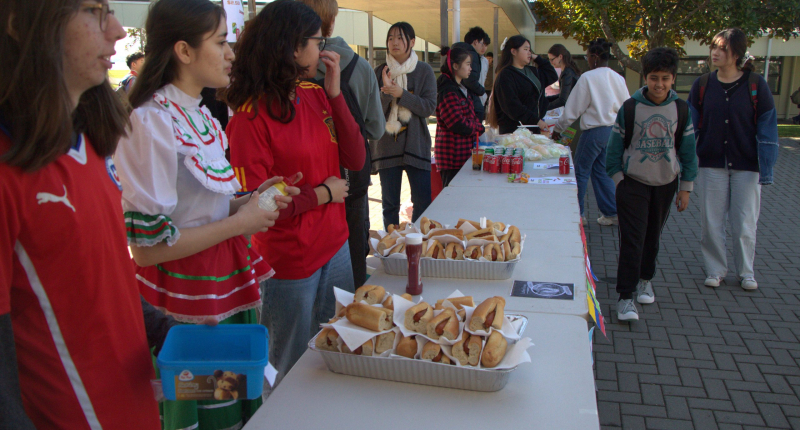Note: this article will briefly talk about racism.
Hello. Kia ora. Kumusta. Hola. 안녕하세요. Γειά σας.
My name is Clarissa Isabel, but I prefer Clarissa. I speak English (fluently), but I was born in the Philippines where the native language was either Tagalog or your regional dialect which, for me, was Cebuano. But the reality is, I cannot speak a word of Tagalog or Cebuano.
Sure, when my parents speak it to me at home, I can understand it. But I don’t respond back in the same language; I respond in English.
My family immigrated to New Zealand when I was six years old. I remember a story my mother told me of when she was on her way to work in the city and bumped into a man. But instead of apologising, the man yelled out “bloody immigrants!” while still in earshot of her. My mom was in a rush, so she left without a comment.
I’ve found that being an immigrant also came with a universal experience: being ridiculed for my school lunch. When I started primary school, I brought rice and sud-an (food eaten with rice, like a side dish); the other kids would question my ‘strange food choices’. I was seven when I started throwing my food in the bin and insisting my mom started packing more ‘normal’ lunches.
While I can’t list every moment of racism my family experienced, they were significant to how I viewed myself as I grew up. I saw my ethnicity as something to be ashamed of: my food was weird; my language was odd. And since New Zealand speaks primarily English, I spoke English and stopped speaking my mother tongue.
Speaking English gave me better opportunities. I remember my primary teacher telling me to go to the leadership workshop one day and, when I came back, encouraging me to apply for house captain. Before that day, I was still a normal (immigrant) child.
I’m eighteen years old and I take English Language at A Level. My experience in primary school, the shift from speaking my mother tongue to English and losing my mother tongue, is what we call a language shift.
Language shift is the process where a speaker (usually a speech community) gradually stops using one of its two languages in favour of another, especially when it offers greater advantages. The advantage for me to speak English was the opportunities to grow within my community.
But the reality of language shift is the possibility of language death.
English is the second largest language in the world, second to Mandarin. More than 6,000 languages are spoken throughout the world but only 6% of the world’s languages are spoken by 94% of the world’s population.
That’s over 5,000 languages that could be very close to extinction.
We talk about maintaining biodiversity and protecting endangered species in our biology classes, but that shouldn’t be limited to our environment. Our languages are just as important. After all, we know what a big coming-of-age party for a 15-year-old Hispanic girl with a big, poofy dress is called, but you wouldn’t know what to call it unless Spanish existed and English borrowed the word quinceañera from them.
What we lose is essentially an enormous cultural heritage, the way of expressing the relationship with nature, with the world, between themselves in the framework of their families, their kin people.
Claude Hagège, French linguist
People around me speak a multitude of languages; I have friends who speak Mandarin, Cantonese, Afrikaans, Arabic, Spanish, and Japanese. These are the same people who have educated me on their cultural cuisine, sayings from their language that cannot be translated into English, and special holidays that are important to them.
Without these little things about culture and language, I would be as close-minded as the mainland Filipinos bashing Fil-Ams (Filipino-Americans) for trying to represent their home country in small things like wearing the Philippine flag as their graduation stole. Then they wonder why Filipinos are rarely represented overseas.
Overseas, I have friends who loathe the fact their school doesn’t offer other languages as a subject at school. So while we do complain about making languages compulsory in Year 9, there are people in the world who wish they had the same opportunities.
July 24th, 2023
Written by Clarissa Oblefias
Edited and reviewed by Shafquat Tabeeb and Emma Li









